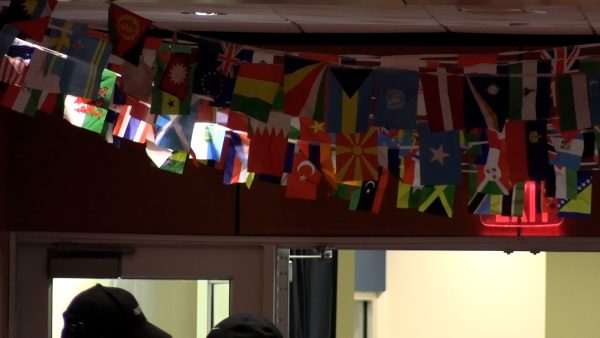Our view: The price of piracy
August 5, 2009
Joel Tenenbaum, a Boston University graduate student, was the most recent victim of the lawsuit-happy Recording Industry Association of America. He was ordered by a federal jury to pay $675,000 to four record labels for downloading and sharing 30 songs from illegal file-sharing software.
This comes after Minnesota mother Jammie Thomas-Rasset was charged $1.92 million in June for the 24 songs she was accused of downloading and sharing.
A graduate student and a mother of four are not the people the RIAA needs to be making examples of. There must be nasty people out there maliciously downloading commercial quantities of music, hoarding them, reprinting them and selling them to make a killing in profits. If people are doing that, they’re criminals. If they’re not profiting from their downloads, then leave them alone.
Still, that’s all beside the point. $1.92 million? If that’s not cruel, unusual and wildly excessive, we don’t know what is.
A study by the Institute for Policy Innovation said global music piracy causes $12.5 billion of economic losses every year and is responsible for 71,060 U.S. jobs lost, according to the RIAA’s Web site.
Songs bought from iTunes usually cost about 99 cents each. In Tenenbaum’s case, he paid about $22,500 per song. Thomas-Rasset forked over $80,000 per song. OK, so there are economic losses from piracy. Was that federal jury trying to get back the $12.5 billion from Tenenbaum and Thomas-Rasset?
We understand piracy hurts an already wounded economy, but to single out a grad student, most likely in debt from years of education, and a mother for 54 songs between them and make them pay a combined $2.6 million is uncalled for. On its Web site, the RIAA says groups that need to be stopped are “criminals manufacturing mass numbers of counterfeit CDs,” and “online companies who build businesses based on theft and encourage users to break the law.” Don’t pick on the Average Joels of America.
From a Kent State student’s point of view, illegal downloading is hardly a crime. With the rising cost of tuition, books and housing, among other things, a few dollars for the luxury of music can be hard to come by. In many ways, the recording industry brought pirating on themselves. It costs pennies to produce each CD, but they charge up to $18 for them.
RIAA needs to face the facts: The market for intellectual goods is rapidly changing. If you’re reading this editorial on a dead tree, you’re one of a lessening number of people who are. Most consumers of information go to the Web. So do consumers of music.
In 2007, Kent State was ranked 17th on the RIAA’s list of worst offenders among universities downloading music illegally. The introduction of free-music downloading programs, such as Ruckus, helped Kent State drop to the 118th spot in 2008.
Ruckus, however, folded in early February, giving students one less option to turn to for free music. The RIAA needs to shift its product as its consumers shift their needs. Supply what’s demanded. Be creative. Don’t complain about it. And, for the love of reason, don’t hang a couple average music consumers out to dry.
The above editorial is the consensus opinion of the Summer Kent Stater editorial board.























